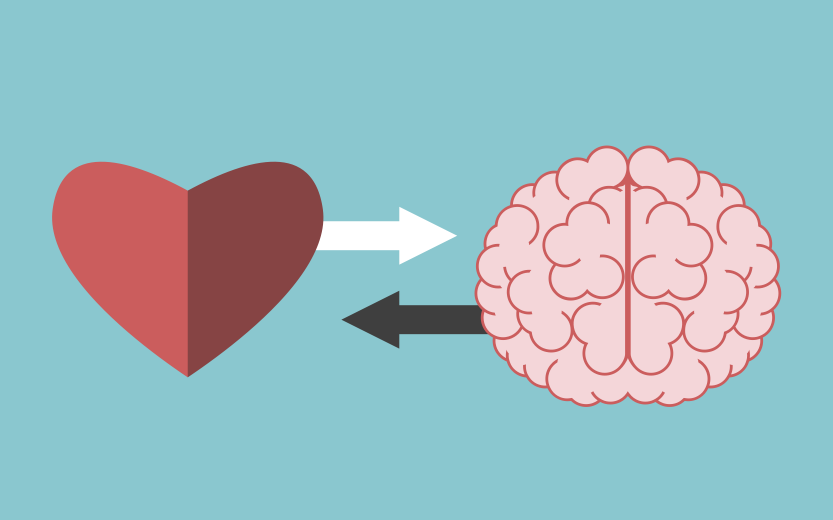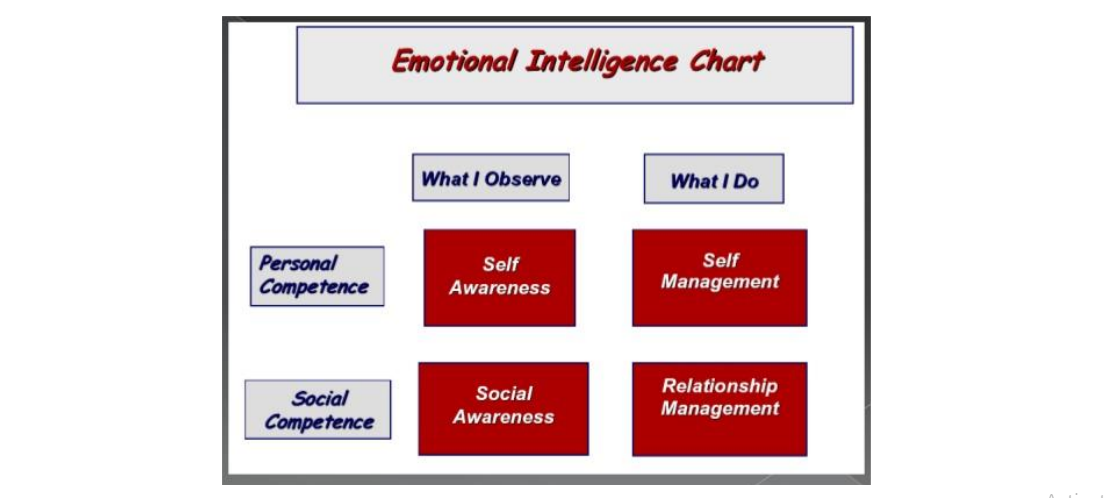Blogs

Why Emotional intelligence has become more important than IQ for Professional Success?
“We are being judged by a new yardstick; not just how smart we are, or by our training and expertise, but also how well we handle ourselves and each other.”
Emotional Intelligence (EQ) has been widely recognized as a valuable skill for attaining success in professional life. As per LinkedIn Learning-2020 Workplace Learning Report, emotional intelligence is one of the top 5 soft skills which the companies need the most in their employees in 2020, besides creativity, persuasion, collaboration and adaptability. Emotional Intelligence helps to improve communication, management, interpersonal, problem-solving and leadership skills of an individual. If we want to stride up in the career ladder then, developing high emotional intelligence becomes imperative for success.
- 1. Creativity
- 2. Persuasion
- 3. Collaboration
- 4. Adaptability
- 5. Emotional Intelligence
Top 5 Soft Skills in Demand in 2020 – LinkedIn Learning-2020 Workplace Learning Report
While many people feel that high IQ itself leads to success in profession, the importance of high EQ is now being widely acknowledged by leading experts and top companies of the globe. In fact, Daniel Goleman, the leading research specialist in EQ, found that EQ is just as important for career success as IQ. In the present competitive environment, high IQ does not guarantee success unless and until it is accompanied by high levels of EQ. Emotional Intelligence is not just vital for CEOs or senior managers but it plays an equally important role in the career growth of college students, interns or seasoned employees in all professions looking for leadership positions. Academicians, doctors, engineers, IT professionals, marketing executives, HR managers and all other professionals need to improve their emotional intelligence to be successful in their respective professions.
In present crises of COVID-19 and Lockdown, the relevance of Emotional Intelligence has increased significantly. Self-isolation, quarantine, stay home and social distancing which have become a new way of life for the people all over the world has been accompanied by the problems of anxiety, worry, stress, depression, and emotional imbalance. The fear of loss of job, salary cuts, lesser income due to closure of business and shops is a cause of financial distress in people. Besides, adjustment among family members, as couples, children, and elderly people, staying together at home 24*7 may create relationship problems. All these issues need to be dealt with at the same time. People with high EQ are well-equipped to handle this challenging situation in a better manner than those with low EQ.
What is Emotional Intelligence?
• Emotional Intelligence refers to the ability to understand our own emotions and those of others and regulating them for motivating ourselves and empathizing with the feelings of others for effective relationship management.
• Emotional intelligence is sometimes referred to as “people smartness”.
Some of the basic emotions present in human beings are – joy, anger, excitement, sadness, surprise, anxiety, shame, guilt, contempt, fear, disgust and stress.
IQ vs. EQ: Which is more important?
Emotions are invariably associated with our thoughts, feelings and behavioural responses and are brought on by neurophysiologic changes. Being intelligent about emotions signifies that we can recognize emotions and are able to manage and deal with them to create healthy interpersonal relations and attaining desired goals.
The concept of emotional intelligence (EQ) was popularized after the publication of psychologist and New York Times science writer Daniel Goleman’s book-“Emotional Intelligence: Why It can Matter more than IQ” (1995). Daniel Goleman emphasized the role of emotional intelligence as a decisive factor in attaining success in personal and professional life. He made a comparison between IQ and emotional intelligence to find out which is a better predictor of success. Goleman cited research studies wherein many individuals with high IQs have been failures in their daily lives while many individuals with average IQ have been very successful in their day-to-day lives. Goleman inferred that practically only 20 percent of an individual’s success depends on IQ while the remaining 80 percent is dependent on emotional intelligence. In other words, we cannot underestimate the significance of recognizing our individual strengths and emotions and this capability is more important in life than knowing one’s IQ.
Sometimes we might have observed that a highly intelligent individual is unable to command respect or work well with the team. Paradoxically, on the other hand a manager who is not “technically gifted”, is respected. How can we explain this?
• A large number of researches have shown that EQ is more important than IQ for success.
• An individual’s success in work is 80% dependent on EQ while only 20% is dependent on IQ.(Goleman)
Personal Benefits of Emotional Intelligence
• Greater success in career
• Strong interpersonal relations
• Higher confidence and optimism
• Better physical and emotional health
Professional Benefits of Emotional Intelligence
• Enriched leadership skills
• Better communication skills
• Lesser conflict at workplace
• Better problem solving abilities
• Higher chances of promotion
Signs of Low EQ in Employees
• Being argumentative (which is different from being assertive) without any logical reason.
• Not listening attentively to instructions given and resorting to indiscipline at workplace.
• Emotional outbursts like shouting, getting very angry on petty issues, too much stressed out or anxious, and inability to control emotions.
• Blaming others for non-completion of work assigned and failures, not taking responsibility for actions, indulging in workplace conflict.
An employee with high EQ has the following qualities:
• Thinks before taking an action. Does not act impulsively.
• Is an effective communicator.
• Is good at managing change.
• Is a problem-solver rather than a problem-creator.
• Possesses a good sense of humor and uses it to calm tense situations.
• Is empathetic.
• Remains optimistic even in adversity.
• Is competent in educating and persuading in sales.
• Resolves customer complaints effectively in a customer service role.
This "clarity" in thinking and "composure" in stressful and chaotic situations is what separates top performers from weak performers in the workplace.
How can an organization benefit from high EQ employees?
“Today companies worldwide routinely look through the lens of EI in hiring, promoting, and developing their employees.”

An organization which comprises of workforce with high emotional intelligence would have a competitive edge in the market because of optimum organizational performance on account of its high performing employees. Decision-making by its managers who are high on EQ will be better, enhanced team performance and leadership abilities of the employees will not only create a healthy work culture in the organization but will also will instill a greater sense of personal well-being in employees, decreased occupational stress and reduced staff turnover in organization.
Can We Enhance Our Emotional Intelligence?

Although IQ of an individual cannot be enhanced, the good news is that the EQ level of an individual can be enhanced by training and practice. Training in developing EQ enables an individual to improve upon the above four dimensions viz. Self-Awareness, Self-Management, Social Awareness and Relationship Management. When an individual works upon his self-awareness and self-management, his/her personal competence is enhanced and working upon social awareness and relationship management leads to social competence in form of building networks, improved interpersonal relations and team work, building trust and rapport in professional relations, leadership ability, negotiation skills and conflict resolution skills.
In short, developing emotional intelligence empowers an individual and equips him/her with skills which are crucial for taking a quantum leap in the career.
